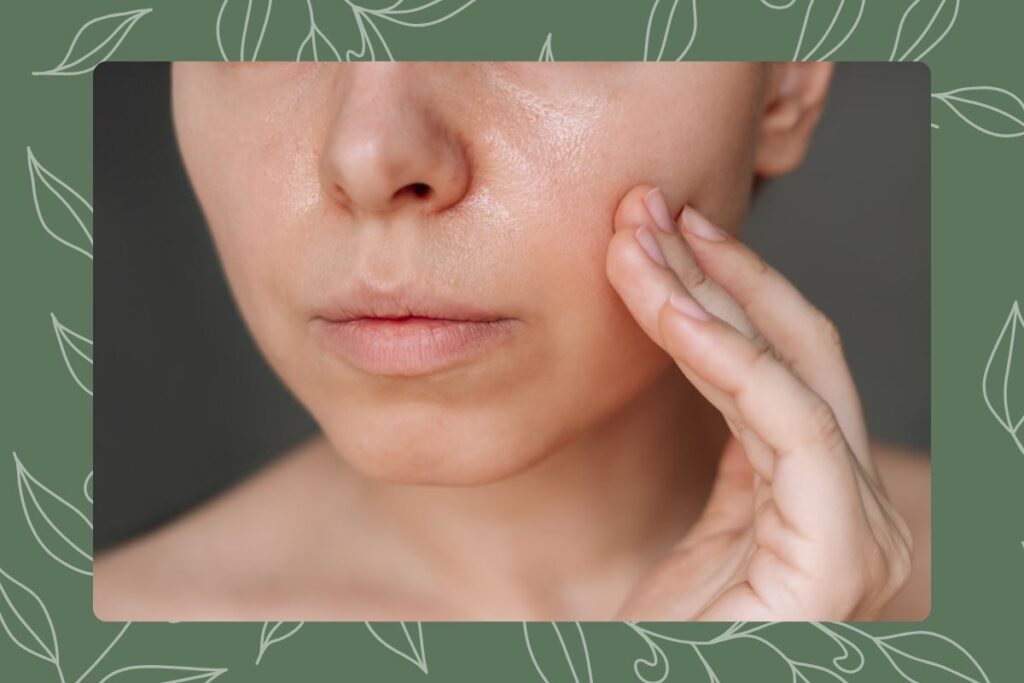Foods & Drinks to Balance Sebum Production Naturally

Key Takeaways:
- Consuming healthy fats during meals can stabilize blood sugar levels and reduce excessive sebum.
- Balanced nutrition helps regulate natural oil production, promoting clearer skin.
- Integrating anti-inflammatory foods and beverages supports overall skin health.
Sebum, the natural oil produced by your skin, is crucial for hydration and protection. However, when produced excessively, it can lead to oily skin, acne, and other skin concerns. An often-overlooked factor influencing sebum levels is diet. At our integrative dermatology practice, we emphasize the power of dietary choices to maintain balanced, clear skin. Understanding how specific foods and drinks can influence sebum production empowers you to make informed, skin-supportive nutritional choices.
Understanding Sebum and Skin Health
Sebum is an oily substance produced by sebaceous glands in your skin, essential for keeping skin moisturized and protected. However, excess sebum can clog pores, causing acne and inflammation.
Causes of Excess Sebum Production
- Hormonal fluctuations: Often driven by stress, menstrual cycles, or conditions like PCOS.
- Diet-induced blood sugar spikes: Eating high-glycemic foods increases insulin levels, triggering hormones that stimulate sebum.
- Stress and lifestyle factors: Chronic stress and poor sleep can influence hormonal balance, increasing oil production.
The Link Between Diet, Blood Sugar, and Sebum Production
Rapid spikes in blood sugar trigger insulin release, which in turn prompts hormonal fluctuations. These hormonal shifts can significantly increase sebum production, resulting in oily skin and acne flare-ups. Maintaining stable blood sugar through dietary practices is vital to managing oily skin holistically.
Dietary Habits to Naturally Balance Sebum Production
Healthy Fats to Regulate Blood Sugar
Including healthy fats in your meals can slow digestion, stabilizing blood sugar and minimizing hormonal fluctuations:
- Avocados: Rich in monounsaturated fats and antioxidants.
- Olive oil: Packed with skin-friendly antioxidants and anti-inflammatory properties.
- Nuts and seeds: Provide healthy fats, fiber, and essential minerals.
Anti-inflammatory Foods to Support Skin Balance
Incorporating anti-inflammatory foods helps reduce skin irritation and balance sebum production:
- Omega-3-rich foods: Fatty fish (salmon, sardines), chia seeds, flaxseeds.
- Leafy green vegetables: Kale, spinach, and Swiss chard provide vital nutrients and antioxidants.
- Berries and antioxidant-rich fruits: Blueberries, raspberries, and cherries combat inflammation and skin damage.
Hydrating and Sebum-Regulating Drinks
Proper hydration helps maintain skin health, reducing excess oil:
- Green tea: Contains polyphenols that can reduce sebum production and inflammation.
- Water: Essential for flushing toxins, maintaining hydration, and supporting balanced skin.
- Herbal teas: Chamomile and peppermint teas provide hydration and anti-inflammatory benefits.
Foods and Drinks to Limit or Avoid
Certain dietary choices can exacerbate oily skin and should be consumed sparingly:
- High glycemic foods: Sugary snacks, refined carbohydrates, and processed foods spike blood sugar levels.
- Dairy products: Some studies link dairy to increased sebum production and acne.
- Excessive alcohol and caffeine: These beverages can dehydrate the skin and trigger inflammation.
Conclusion
Making intentional dietary choices significantly influences your skin’s oil production. By incorporating healthy fats, anti-inflammatory foods, and hydrating beverages into your diet, you can naturally regulate sebum, enhance your skin’s health, and enjoy clearer, more radiant skin. For personalized guidance, reach out to Skintegrative Solutions to schedule your consultation today.
FAQs
1. How quickly can dietary changes impact sebum production?
Significant improvements often occur within a few weeks of dietary adjustments, though full benefits may take several months.
2. Are certain fats better for controlling sebum than others?
Omega-3 fatty acids and monounsaturated fats are most beneficial for balancing sebum and supporting skin health.
3.Can hydration really influence sebum levels?
Yes, adequate hydration prevents dehydration, which can otherwise trigger the skin to produce excess oil.
4. Should I completely avoid sugar to control oily skin?
Moderation is key. Occasional indulgences won’t drastically affect sebum levels, but regular consumption of high-sugar foods should be minimized.
5.Can dietary changes replace topical skincare treatments?
Dietary adjustments complement but don’t replace targeted skincare treatments. Optimal results are achieved through an integrative approach combining diet and topical care.
